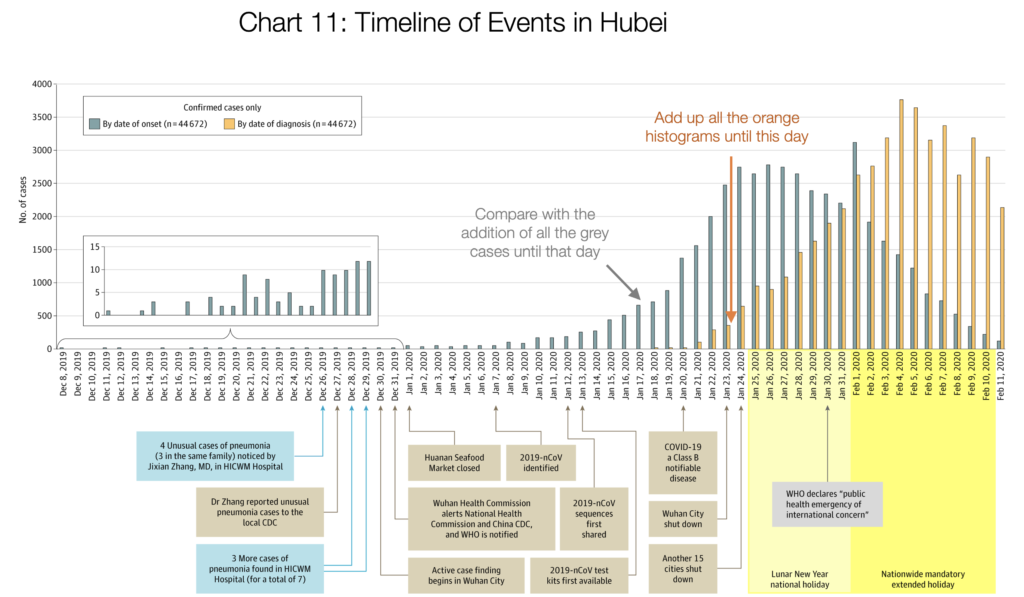Here is a fantastic data-centric article about the spread of the Coronavirus pandemic, efforts to contain it, models comparing those efforts, and conclusions about just how effective rapid social isolation actually is. It’s one of the all-time best articles I have read on the Internet.
The long article was put together by a single person working off publicly available data, published independently, gained traction via social, is immensely educative and will have a real impact on awareness and probably even action.

An example of how important the information in the article is:
The grey bars show the true daily coronavirus cases. The Chinese CDC found these by asking patients during the diagnostic when their symptoms started.
Crucially, these true cases weren’t known at the time. We can only figure them out looking backwards: The authorities don’t know that somebody just started having symptoms. They know when somebody goes to the doctor and gets diagnosed.
What this means is that the orange bars show you what authorities knew, and the grey ones what was really happening.
On January 21st, the number of new diagnosed cases (orange) is exploding: there are around 100 new cases. In reality, there were 1,500 new cases that day, growing exponentially. But the authorities didn’t know that. What they knew was that suddenly there were 100 new cases of this new illness.
Two days later, authorities shut down Wuhan. At that point, the number of diagnosed daily new cases was ~400. Note that number: they made a decision to close the city with just 400 new cases in a day. In reality, there were 2,500 new cases that day, but they didn’t know that.
I wouldn’t be exaggerating when I say this article will be one of the most important pieces written about this episode, and will be referenced a decade later.
This article is what the widespread availability of the Internet has made possible.
Even twenty years ago, even in the early days of the indie Internet, there just wasn’t enough of an audience. And go back just a little bit in time and this wouldn’t even have been possible. The writer wouldn’t be able to get the data from around the world – certainly not this fast. He wouldn’t have been able to publish it. And he couldn’t have gotten the reach he did. Consequently, he would not have been able to have the impact he inevitable will.
There’s been much written about democratisation of information because of the Internet. This is a prime example and it is not a small thing.
